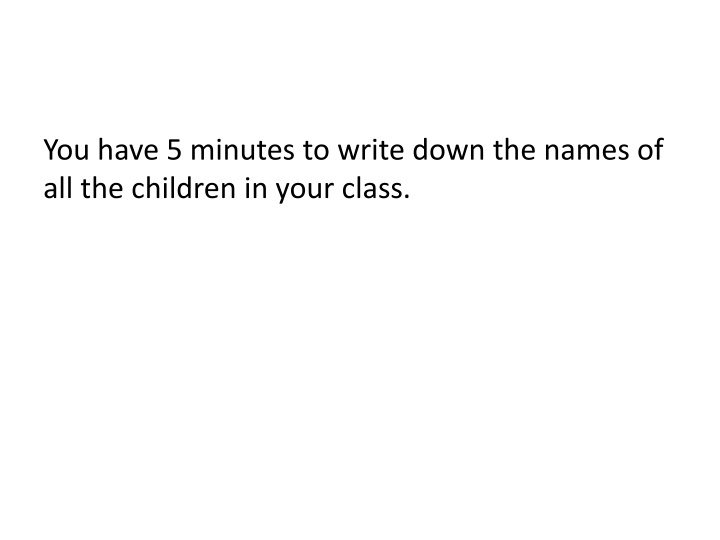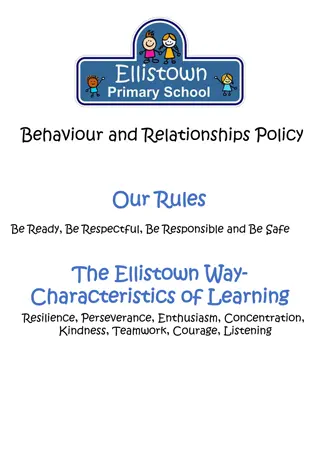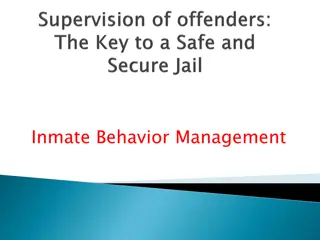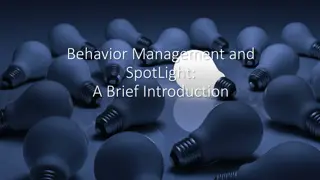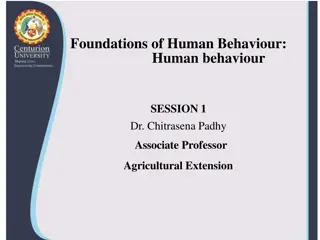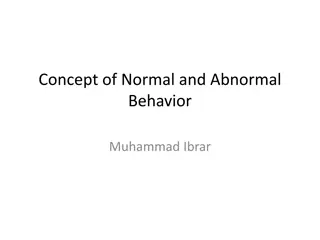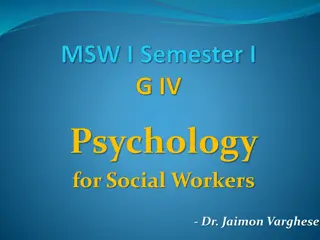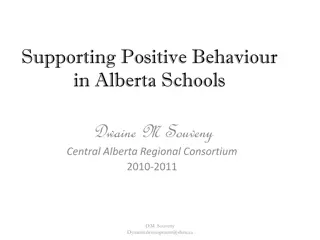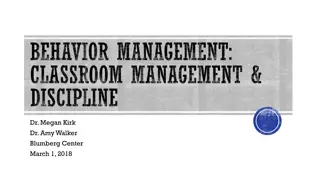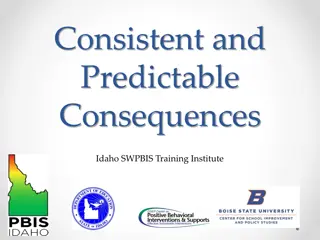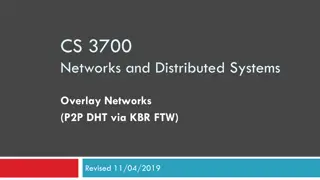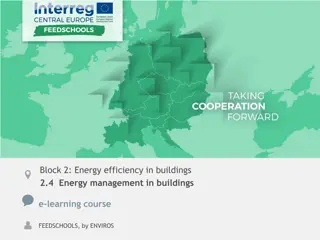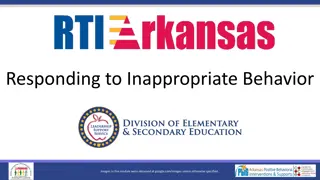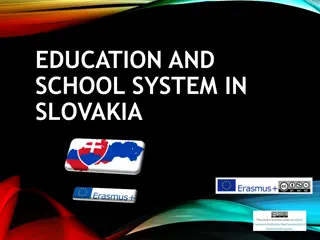Effective Strategies for Consistent Behavior Management in Schools
Implementing visible consistency, scripted interventions, reminders, consequences, and adult expectations can optimize behavior management in schools. Recognizing and rewarding positive conduct while addressing misconduct with a structured approach contributes to creating a safe and conducive learning environment for all students.
Download Presentation

Please find below an Image/Link to download the presentation.
The content on the website is provided AS IS for your information and personal use only. It may not be sold, licensed, or shared on other websites without obtaining consent from the author.If you encounter any issues during the download, it is possible that the publisher has removed the file from their server.
You are allowed to download the files provided on this website for personal or commercial use, subject to the condition that they are used lawfully. All files are the property of their respective owners.
The content on the website is provided AS IS for your information and personal use only. It may not be sold, licensed, or shared on other websites without obtaining consent from the author.
E N D
Presentation Transcript
You have 5 minutes to write down the names of all the children in your class.
Our School Rules Behave safely Look after people and property Listen to and follow instructions
Over and Above: How do we recognise the children who do their very best to make Kingsland a better place? First attention for best conduct Praise HT Awards House Points
Visible Consistency Let s stop waiting for the magic behaviour solution. It isn t coming. The answer lies in the ability of adults to deliver behaviour policy and practice that is simple, effective and utterly consistent. Paul Dix
As adults in the school, what do we consistently expect from children at Kingsland? What are the things we could make better if we were all consistent in what we expected?
3 Visible Consistencies Simple Something all adults in the school agree to do 1. 2. 3.
Reminder A reminder of the rules/routine. Delivered privately wherever possible. Repeat reminders if that is reasonable. Take the initiative to keep things at this stage. What do you do in your class to keep a child on the right track? Consequence There are options here and you need to choose the most appropriate response to the child in front of you at that moment. Verbal Caution Think carefully about your next step 30 second scripted intervention Seeing you for two minutes at break or lunchtime Time out to calm down (this could be in a safe space in class, at the side of the field, a walk down corridor and back) Support from SLT Repair What happened? What were you thinking at the time? How did this make people feel? What should we do to put things right? How can we do things differently next time?
Scripting There are no magic words that will make a child suddenly behave impeccably. But there are better words, a better tone, a better physical approach. The idea is simple but the performance takes practice so start easy! It is a predictable and safe way to send a clear message to the child that says: You own your behaviour. Your poor behaviour does not deserve my time. You are better than the behaviour you are showing today and I can prove it!)
Get In, Deliver the Script, Get Out! Drop to the child s level Deliver the script as privately as possible (PIP and RIP) Use a calm and level tone You don t need eye contact Don t be drawn into a conversation of any kind ( Be that as it may ) Walk away and get back to teaching the class. Do not turn back. Allow take up time .
The 30 Second Script I ve noticed you are It was the rule about that you broke You have chosen to Do you remember last .when you . That is who I need to see today. Thank you for listening.
What do you need to have done before you deliver the script?
When to say it? When you have tried other ways of getting the child to engage When you have given a reasonable number of reminders
Watch out for using a script in isolation. I have seen too many teachers launch into scripts without addressing their own behaviour, before establishing clear routines and before they have built any emotional currency with the learners. Using a script is not a magic bullet but part of a whole approach. It is a strategy built on culture and climate, not a power tool. Paul Dix
Behaviour Blog https://blogs.glowscotland.org.uk/sb/kpsrelati onships
